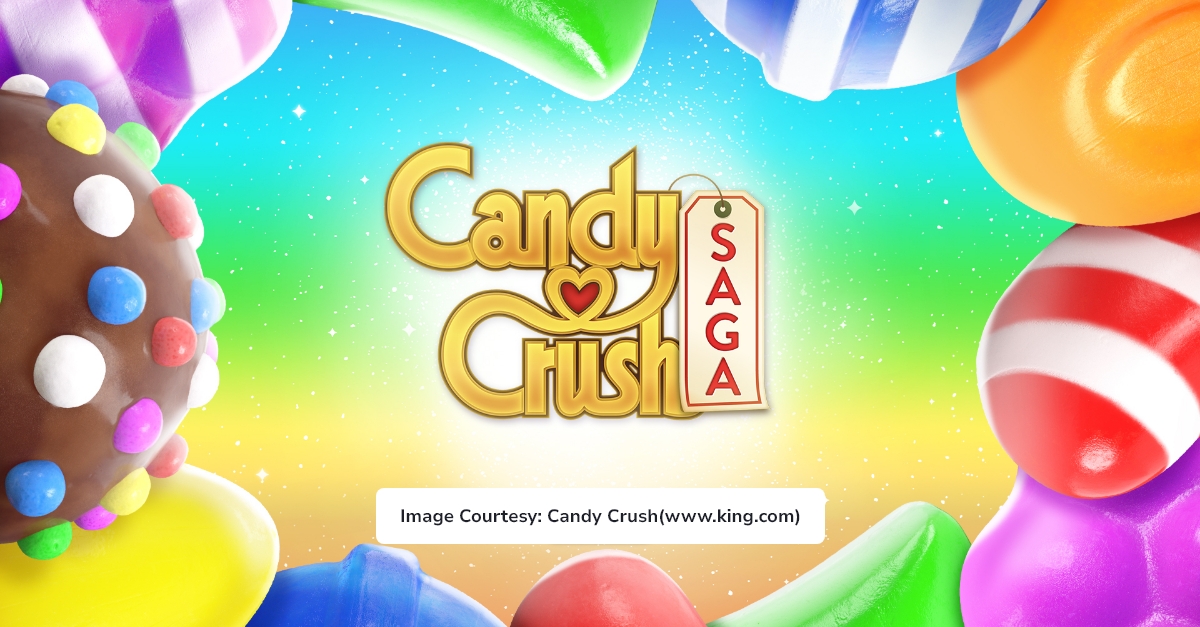Wouldn’t referencing the case study of Candy Crush, which demonstrates a 20% annual growth rate, be beneficial for mental health apps to increase their user acquisition?
That’s the motivation behind writing this blog post.
AFTER BEING ACQUIRED BY MICROSOFT, the Q4 earnings summary of Activision Blizzard provided notable insights into its mobile portfolio. This portfolio includes titles from King (including the popular Candy Crush franchise), Call of Duty Mobile, Diablo Immortal, Hearthstone, and more.
Candy Crush Saga, the main game in the franchise, marked its 10th anniversary in November. Last year, the game witnessed a remarkable 20% growth in in-game net bookings each quarter.
It is still growing.
This outstanding performance is quite different from the overall mobile gaming market, which several alternative data providers suggest experienced a decline in 2022.
SensorTower estimates that the mobile gaming market shrank by 2% in 2022;
Newzoo, by 4.3%;
Data.ai (formerly AppAnnie), by 5%.
Mobile gaming occupies a central position within the impact zone of Apple’s App Tracking Transparency (ATT) privacy policy. Nevertheless, ATT is also influencing all other apps. Therefore, comprehending the implications of mobile gaming will be advantageous for everyone.
Let’s first understand Apple’s App Tracking Transparency.
To understand ATT, We will answer these questions in sequence :
How did Facebook Ads use to work?
Why is Apple killing the IDFA?
How did Facebook Ads use to work?
Facebook’s SDK is present in almost all apps, and its tracking pixel is in almost all e-commerce websites. When a Facebook user clicks on an ad in the Facebook Blue app or on Instagram, that user’s journey on the advertised property is observed by Facebook: events documenting the actions the user takes on that property are transmitted back to Facebook and indexed against that user’s Facebook ID. This is what’s known as an “events stream.”
This events stream provides Facebook valuable insight into how users monetize or engage with third-party properties. It also helps Facebook target ads to those people based on their recorded preferences.
The events stream for app and web advertisers are being broken with the ATT prompt for users opting out of “tracking.” This means that Facebook will no longer have full transparency into what users do in apps or websites once they click on an ad in Facebook Blue or Instagram.
Instead, Facebook will receive a very limited amount of interaction data from the advertised property.
Why is Apple acting in such a way?
Apple assumed that when the advertisements people encounter in their everyday products, like Facebook, Instagram, mobile games, and so on, become irrelevant and disruptive, what consequences might arise?
How do users’ behaviours change to adapt to this new product environment, where users are exposed to advertisements irrelevant to their lives or preferences?
Apple thought:
Increased app store search.
One of the reasons why Apple decided to deprecate the IDFA (Identifier for Advertisers) was to regain control over the App Store from Facebook. Facebook held significant control over app distribution by utilizing precise advertising techniques.
The magnitude of the deprecation of IDFA on the mobile landscape is explained below:
Category A.
High in App purchase monetization games. (Core Games)
The overall impact is extreme.
This is because of the extreme impact on event attribution and user targeting.
Category B.
Moderate in-app purchase monetization games. They are also called Casual games.
Casual games like puzzle and simulation games often use ad platforms to reach their target audience and make money. However, these games have broader appeal and can be advertised more easily without precise targeting.
They also don’t heavily rely on extreme monetization from a small group of users for their financial success.
Instead, they rely on a more sustainable revenue distribution across a larger user base.
The overall impact is moderate due to its effect on event attribution and user targeting.
Category C.
“Middle” of the casual-to-core spectrum of mobile gaming.
This is where Candy Crush Saga lies.
It’s lightweight but effective monetization mechanics, expansively appealing aesthetics, and a straightforward and intuitive puzzle game mechanic.
These Games focus on cosmetic appeal and accommodate a wider range of player preferences. These are the games that will excel in the post-ATT market.
They are leading, supported by widespread brand recognition, a broad potential customer base, easy-to-understand game mechanics, and a universally appealing style and atmosphere.
What inspiration can health apps draw from it?





